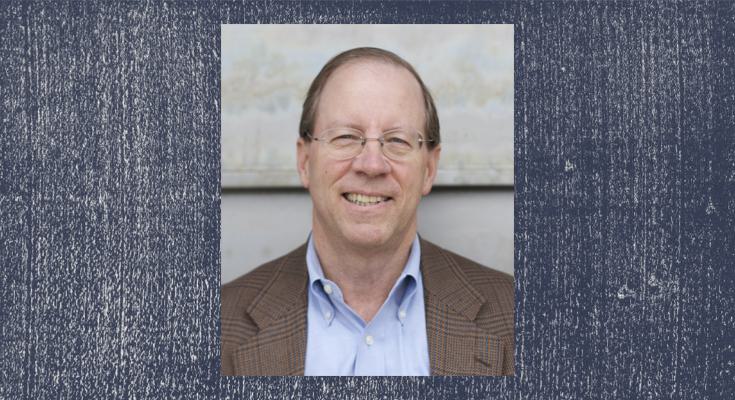Back in August of this year, Harvard announced that they had hired a new chaplain who happens to be an atheist. That does not seem to be a problem for the powers that be who unanimously selected him for the role.
Greg Epstein, who is 44, formerly served as the university’s humanist chaplain. In an interview with the New York Times, Epstein said:
“There is a rising group of people who no longer identify with any religious tradition but still experience a real need for conversation and support around what it means to be a good human and live an ethical life.”
Harvard was founded in 1636, and one of its central bylaws was this:
“Let every student be earnestly pressed to consider well that the main end of his life and studies is to know God and Jesus Christ who is eternal life–and therefore to lay Christ in the bottom, as the only foundation of all sound knowledge and learning.”
There is no doubt that Harvard was a spiritually vibrant place for years. In fact, various groups and individuals believe this was the foundation that led to its initial greatness as an educational institution.
That has all changed. It appears today that Jesus has been expelled from the institution. When Henri Nouwen resigned from Harvard Divinity School in 1985, he described the place as a spiritual desert, that God was dead at Harvard, even at the divinity school.
In February of 1993, American Christian evangelist Billy Graham conducted a lengthy meeting with Harvard’s president, Derek Bok. As Graham was leaving, he asked Bok one last question, “What is the number one struggle the students at Harvard have to contend with?” Bok had no need to give it much thought, as he quickly responded, “Living with emptiness.”
Kelly Kullberg founded the Veritas Forum at Harvard, where she seeks to help students find their faith. Upon hearing Bok’s response, she asked the question: “How did such a great institution like Harvard become a place of emptiness?”
Kullberg shared a shocking incident upon attempting to reach out and minister to a few of the women at Harvard Divinity School. She attended a women’s meeting that was held in the University Chapel, called “The Full Moon Circle.” The group described themselves as a Neo-pagan, pre-Christian, ecofeminist Wiccan society. Of course, Wiccan societies practice witchcraft.
Kullberg described the chapel as packed. The women chanted to the spirits, worshipped the full moon, and attempted to reach their dead ancestors. It was shocking to see these bright, educated women acting as if they were unenlightened pagans.
In 2006, the cover story of Harvard’s student newspaper, The Crimson, revealed the rampant incidence of student depression among the university’s 6,700 students. The newspaper reported that 80% of the student body had experienced depression at least once during the school year. Nearly half (47%) of the student body found themselves depressed to the point of having a hard time functioning. 650 students (10%) had strongly considered committing suicide.
Nobel Prize-winning French novelist Albert Camus said, “There is but one truly philosophical problem, and that is suicide. Judging whether life is worth living amounts to answering the fundamental question of philosophy.”
Camus knew of many people who took their lives because they saw life to be meaningless and, therefore, not worth living.
Thomas Masaryk, the first president of liberated Czechoslovakia after World War I, wrote the book Suicide and the Meaning of Civilization. The thesis of the book states that the more godless a society becomes, the higher the rate of suicide. His research suggests that in the Middle Ages, the number of suicides was negligible. By the end of the nineteenth century, suicide had become one of the top causes of death. Today, suicide has surpassed car crashes as the leading cause of death due to injury. Furthermore, Masaryk uncovered that the vast majority of these deaths occurred among highly principled, well-educated people who had no religious faith. His conclusion reveals the tragic story of those individuals who can find no purpose in life and, therefore, have no reason to live.
To acquire meaning, you have to look to God to answer life’s significant questions. These concern our place and purpose in the world, the significance of our lives, and our ultimate destiny. Unfortunately, much of our population has moved away from the biblical worldview that has always supplied the answers. But the questions have not gone away and they never will. Modern man is therefore left all alone, disconnected from the One who gives life meaning.
Richard E. Simmons III is the founding director of The Center for Executive Leadership, a faith-based ministry in Birmingham, Alabama, focused on counseling businessmen and professionals. His column appears every weekend in 1819 News. Richard is the best-selling author of The True Measure of a Man, Reliable Truth, and The Power of a Humble Life. His newest book, an Amazon best-seller, is Reflections on the Existence of God – a series of short essays seeking to answer life’s most enduring question: Does God exist? You can find Richard's weekly blog, podcast, and more at richardesimmons3.com. The views and opinions expressed here are those of the author and do not necessarily reflect the policy or position of 1819 News. To comment, please send an email with your name and contact information to Commentary@1819News.com










